More often than not, when a government becomes rogue, it’s the people who take to the streets to fight those in power. This part of human civilisation keeps repeating itself. And 2020 has not been any different. Despite a raging pandemic, people have taken it upon themselves to fight their battle on the streets.
1. The CAA-NRC protests began in India as the people actively protested the laws that would see a lot of them without a country.
People all across the country went on the streets, more prominently in minority dominated areas of the capital to protest against laws that would see them (mostly the poor and Muslims) disenfranchised and without a country to call their own, a law that could precede disastrous circumstances. Among these protests, the one that gained prominence and everyone took notice of was the one in Delhi’s Shaheen Bagh that outlasted every other protest and was only stopped due to the pandemic.
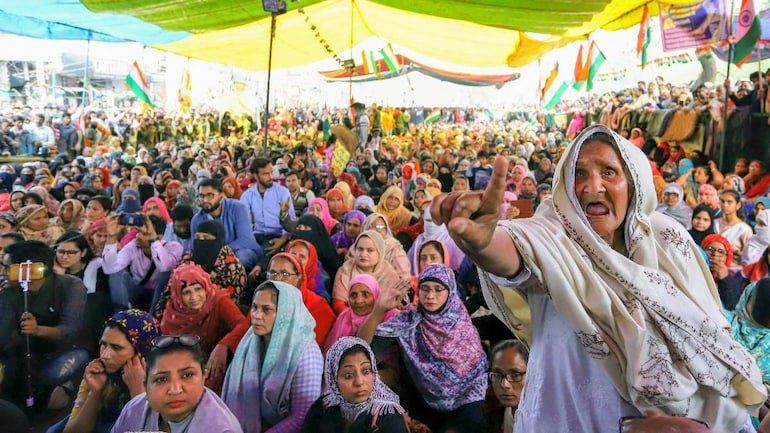
2. The Farmers’ protest, which rages on to this day is a response to the new farm laws that the government wants to implement. But farmer unions have dubbed it ‘anti-farm laws’ and are demaning a total callback of the laws.
Indian farmers are currently stationed on the borders of the national capital protesting laws passed by the Modi government that have been dubbed ‘anti-farmer laws’ by farmer unions across the country. The laws if implemented would essentially leave farmers at the mercy of corporations. The protests continue to rage on, in the midst of a harsh Delhi winter and an ongoing pandemic.
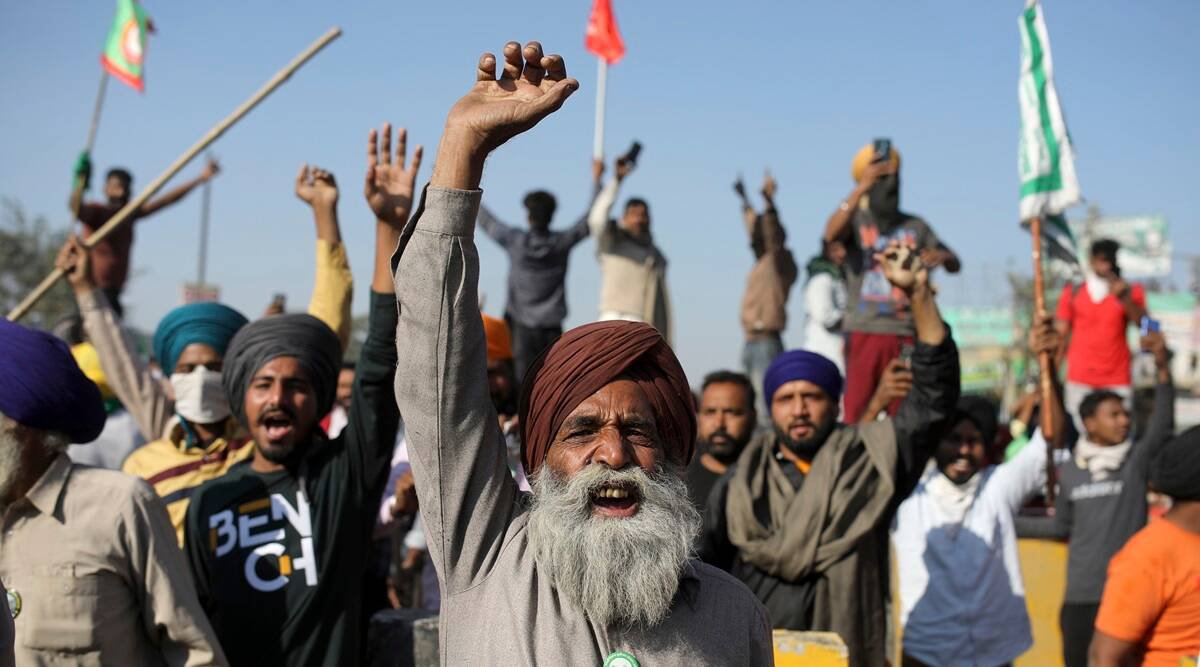
3. The Hong Kong protests against China still continues as people protest the law that allows China to extradite its citizens to stand trial.
Thousands of people are still protesting in Hong Kong against a new Chinese law that allows extradition of people accused of crimes against China to stand trial. These protesters have been at it for months now. Some of these protests have also turned violent with the cops using tear gas while the protesters have thrown molotovs on them.
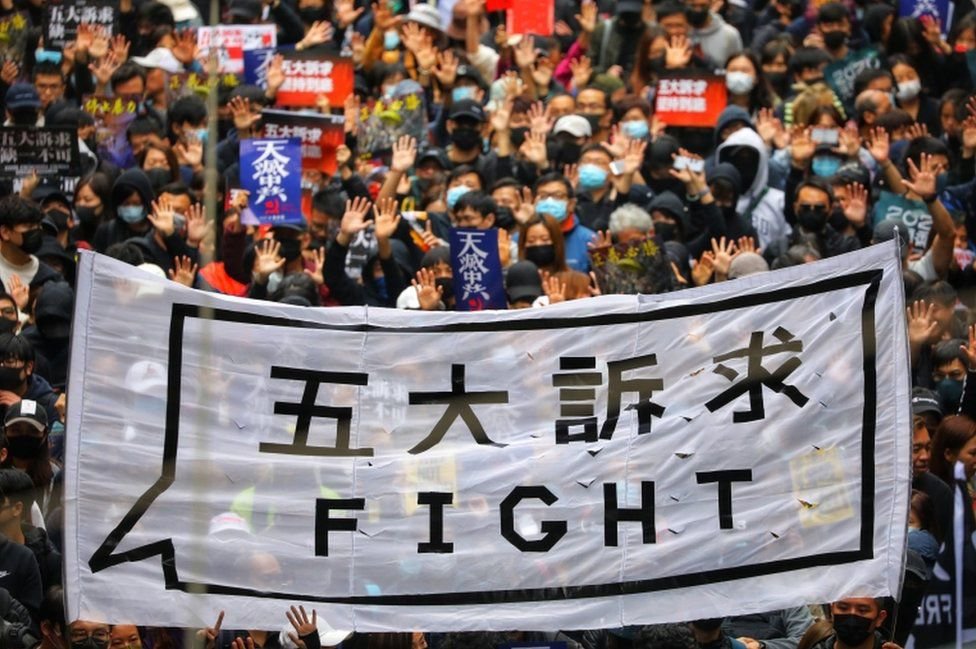
4. Every year on International Women’s Day, people from all walks of life march on the streets protesting issues like gender equality, violence against women, discrimination, anti-abortion laws among other things.
On March 8, women all across the globe marched in solidarity protests about critical issues, like gender inequality and gender-based violence. This year too the protests took place in many a country including Chile, Mexico, Pakistan, France, Turkey, United States, Philippines.
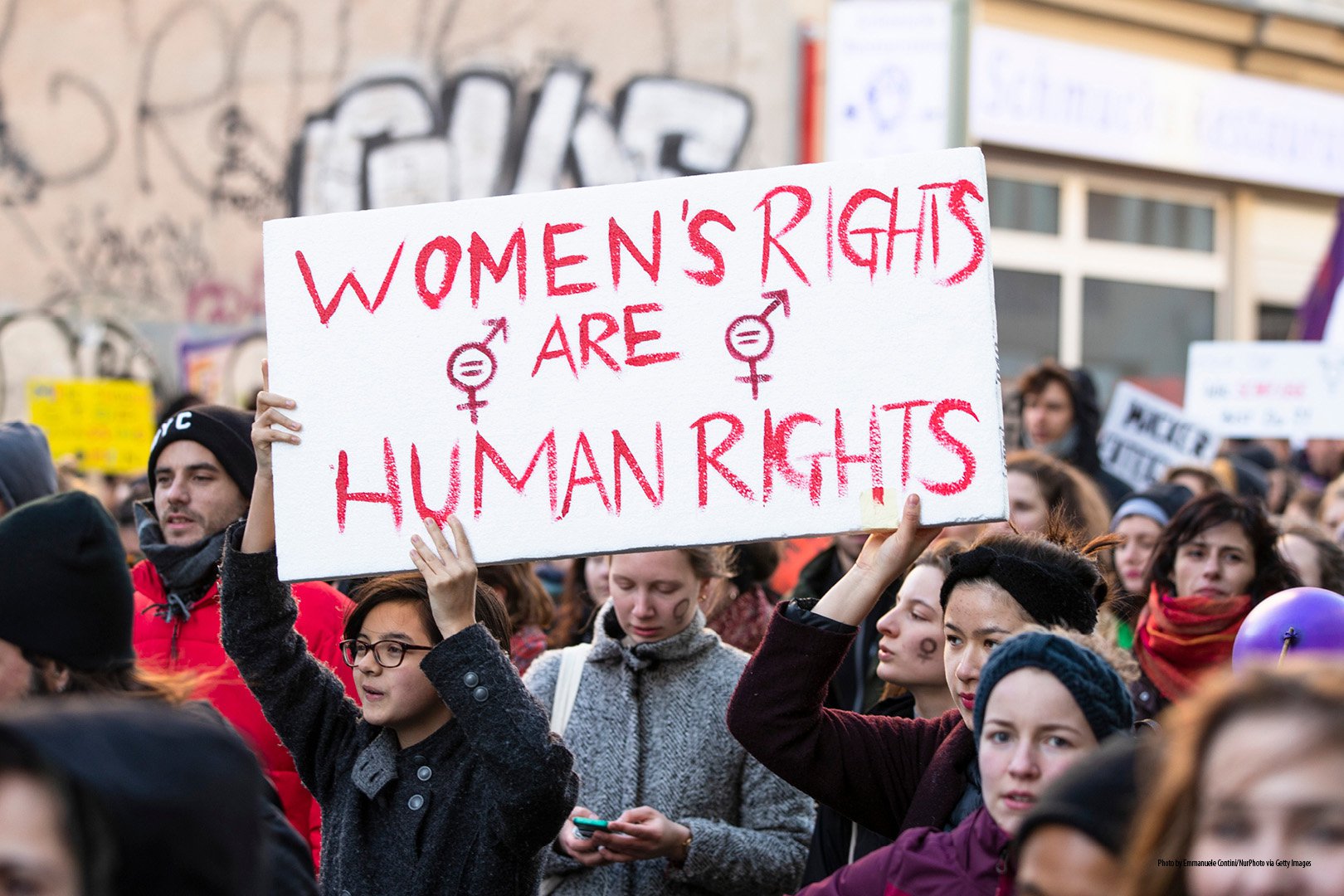
5. The Virtual Climate Strikes are organised by climate activists like Greta Thunberg who have asked students of the world to join school climate strikes.
Activists like Greta Thunberg and Vanessa Nakate called for school climate strikes around the globe. Typically these protests are organised on the streets but this year, due to the pandemic, the protests have continued on social media with pictures, videos and slogans by protesters.
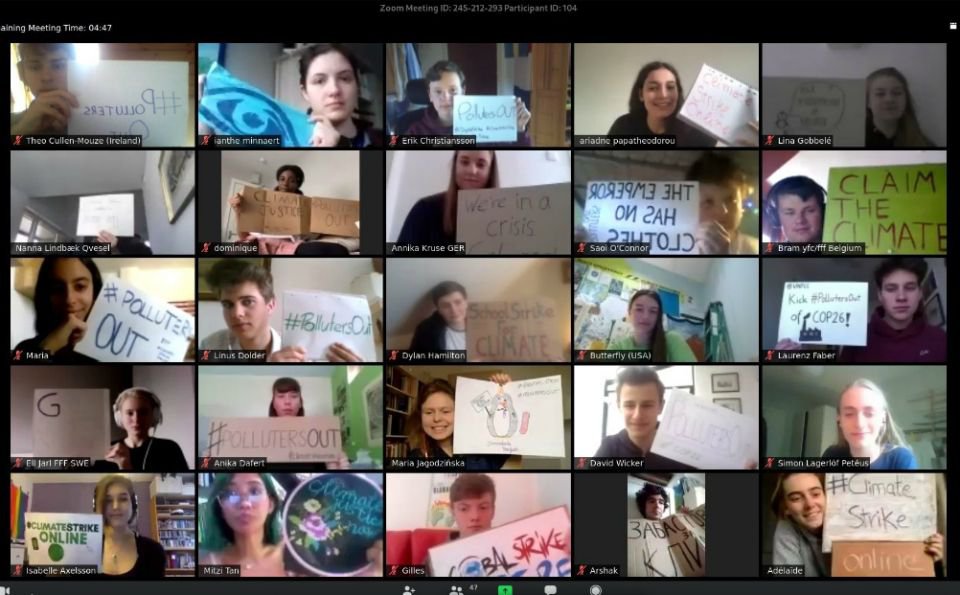
6. ‘I Run With Maud’ erupted in the United States after a black man, Ahmed Arbery was shot down while jogging in the morning in an act of racial hatred.
The murder of American citizen, Ahmed Arbery at the hands of two white men while on a run started the protests where thousands of peope marched on the streets demanding justice for the fallen and to raise awareness about violence against Black people in America.
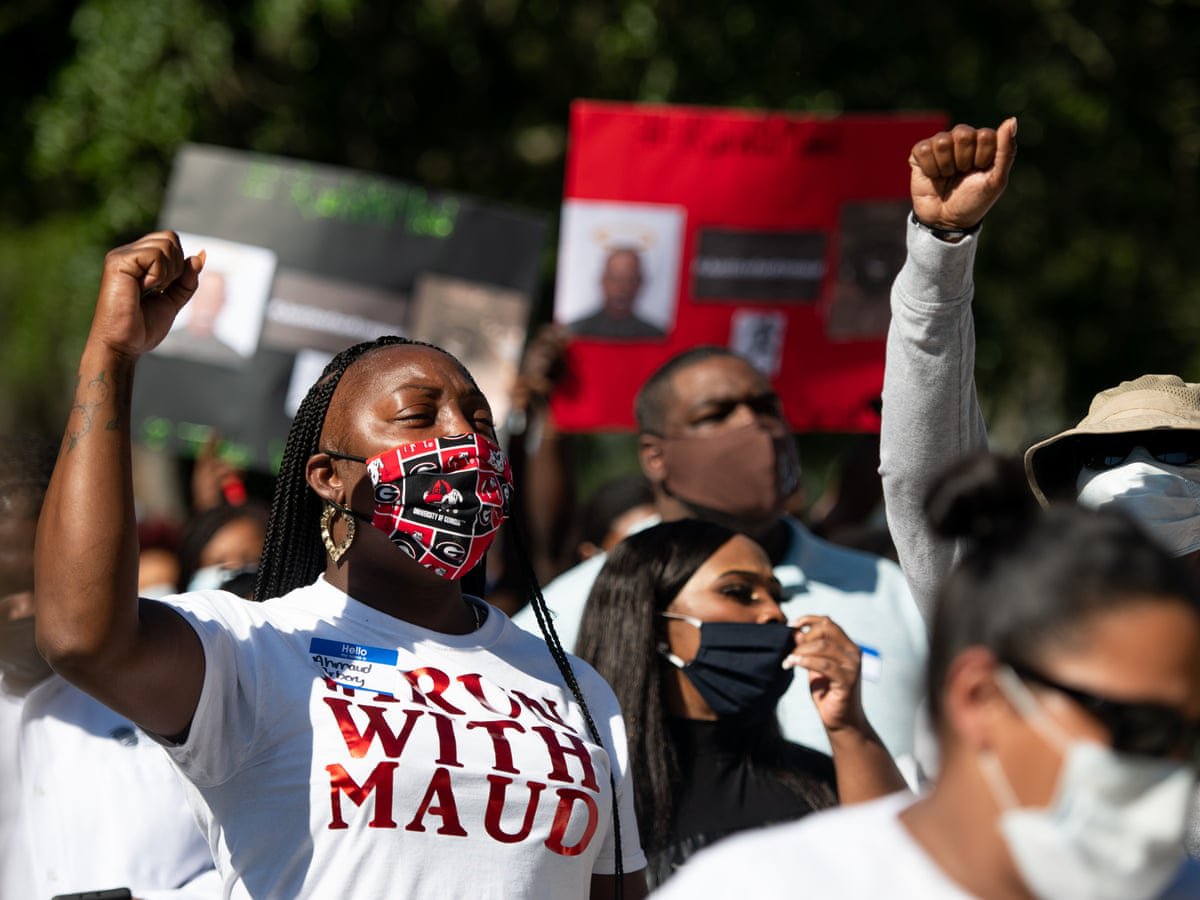
7. The George Floyd- Black Lives Matter protests gained top headlines again as a video surfaced of police officers killing a black man in public by leaning on his neck.
A police officer named Derek Chauvin kneeled on George Floyd‘s neck for nearly nine minutes, killing him as he cried out, ‘I can’t breathe’. The four officers involved in Floyd’s death were not charged until days later, after video of the killing was released, prompting one of most fierce protests of our time. Tens of thousands of people stormed the streets demanding the arrests of the cops responsible and demanding justice for black people who have been/are killed by white policemen.
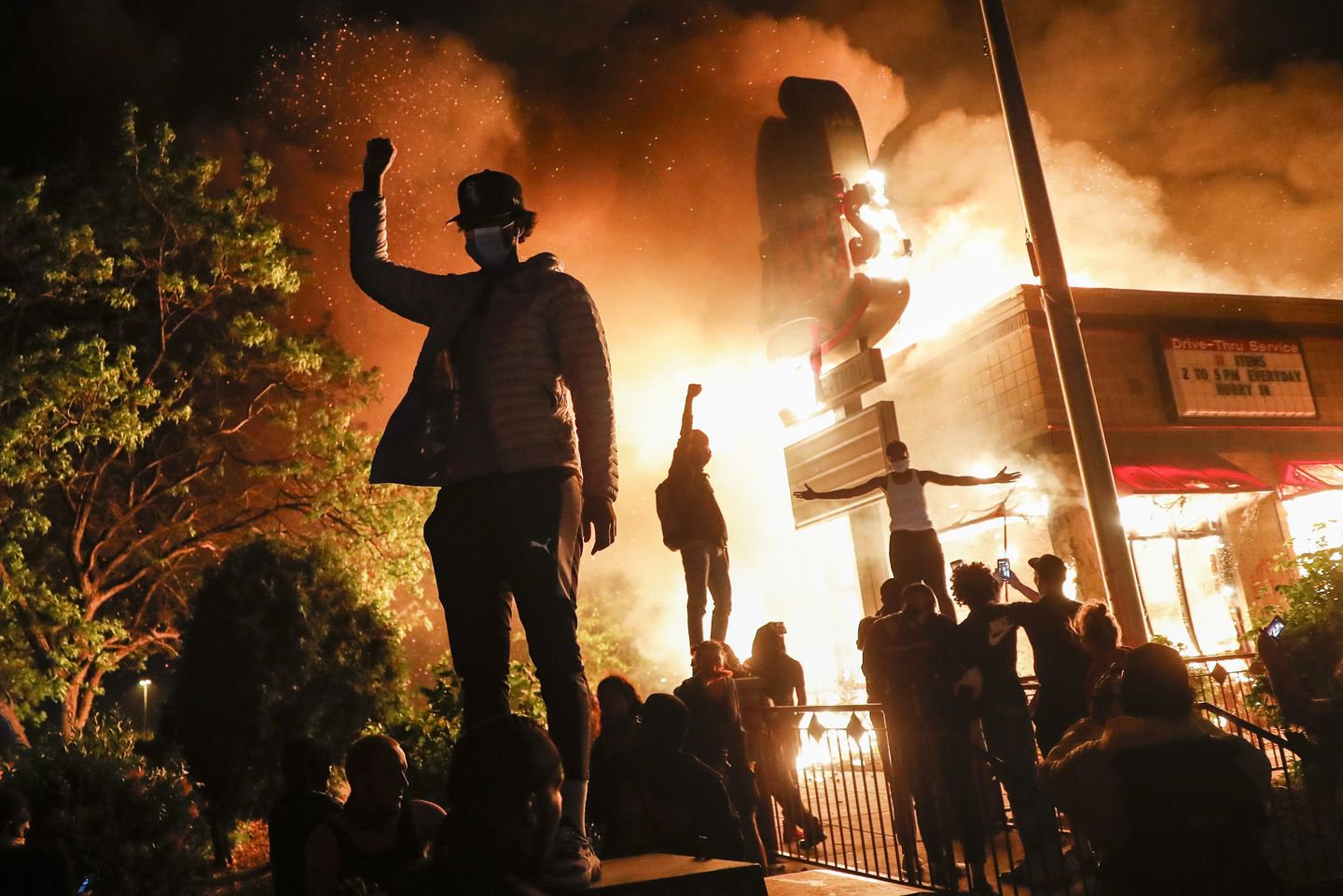
On June 26, the Minneapolis City Council voted unanimously to dismantle the police department.
8. The Black Lives Matter protests that started in the US now started a chain all across the world where people protested against racial discrimination and violence.
What started on the streets of Minneapolis soon spread all across the world, where people flocked the streets for days asking for justice, mostly from colonial legacies. In the United States people, took down statues of confederate leaders, while in countries like Australia, Brazil, England, Belgium etc, people took down and burned the statues of their former colonial trespassers.
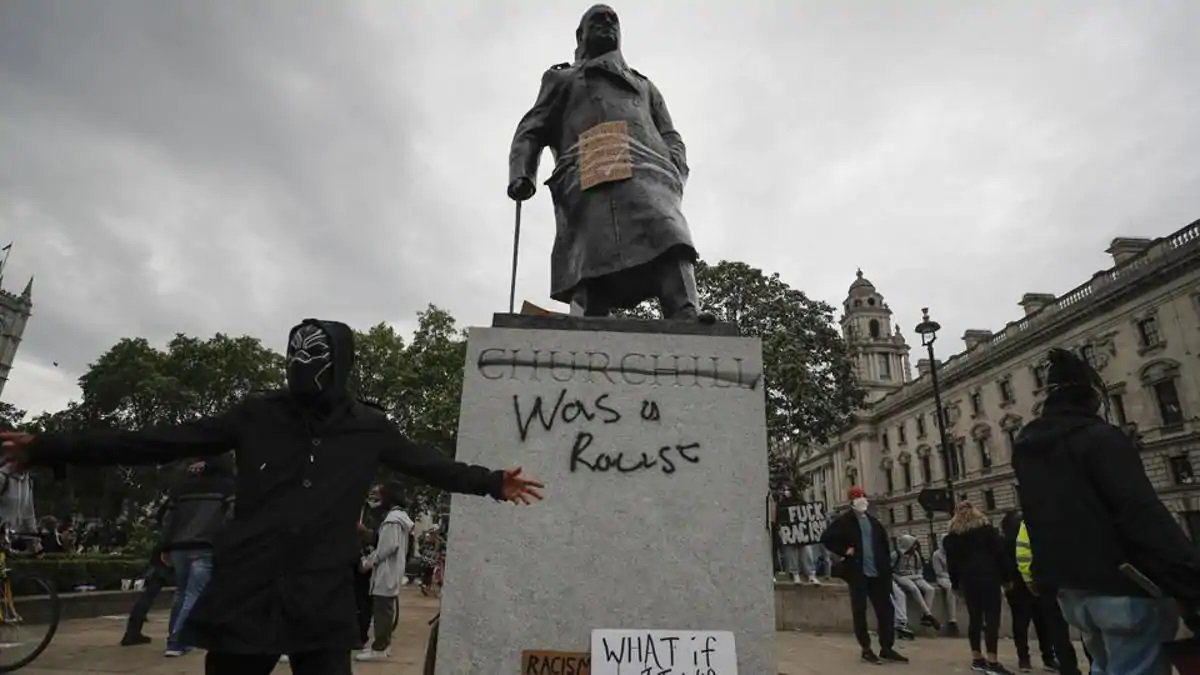
9. The Poland Abortion protests started after the country’s government banned women from getting abortion, protests erupted in the country that brought the government to its knees.
Poland‘s right-wing government had passed a law essentially banning all abortions in the country prompting the largest protests the country had seen since the fall of Russian communism. More than a 100,000 people, mostly women marched the streets with gay abandon demanding that the government roll back the draconian law that prohibited them from being masters of their own bodies.
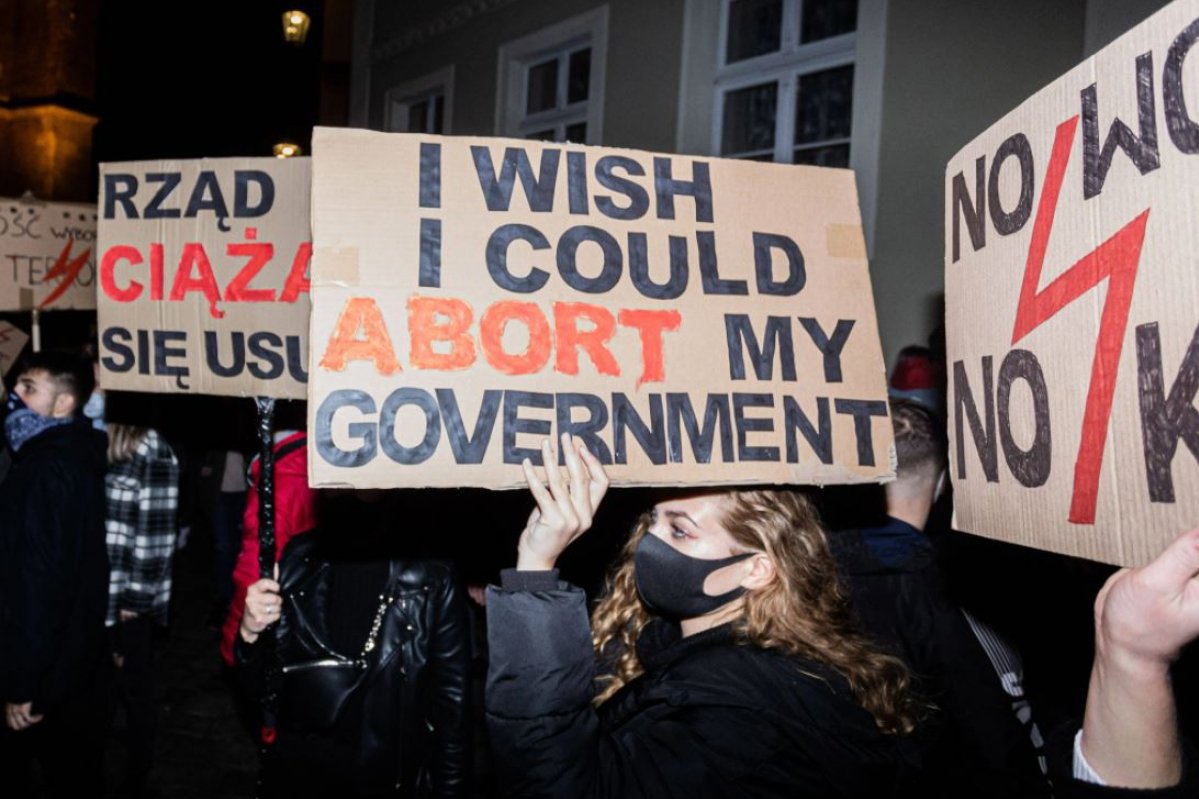
10. The Rubber Duck protests in Thailand was seen as a sign of resistance against a possible coup in the country.
Thai protesters flooded the streets with rubber ducks as a sign of resistance against a possible coup. The protests were led by the youth who asked for a new constitution, a reform of the monarchy, and demanded the resignation of Prime Minister Prayut Chan-O-Cha.
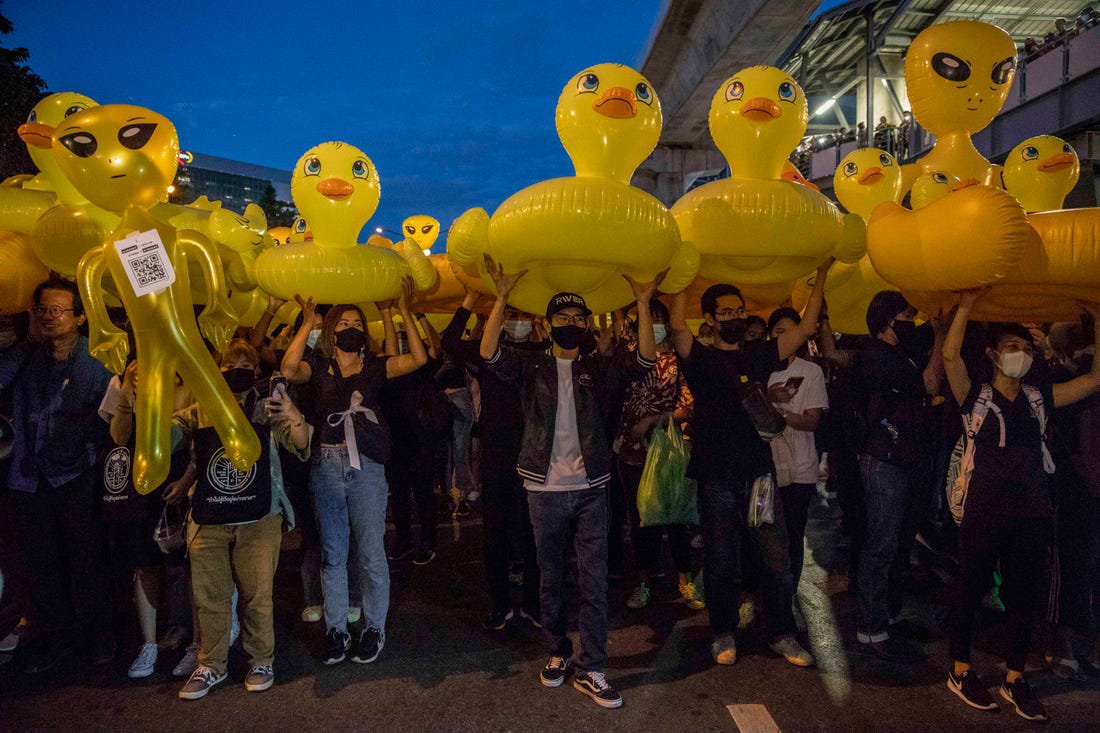
11. The Bloody November protests in Iran were a result of an insane increase in fuel prices among other things that called to overthrow the existing government.
The protests began in November and continued until the early months of 2020. These were a series of nationwide civil protests that were initially triggered by a 50%–200% increase in fuel prices, leading to calls for the overthrow of the government in Iran and Supreme Leader Ali Khamenei.
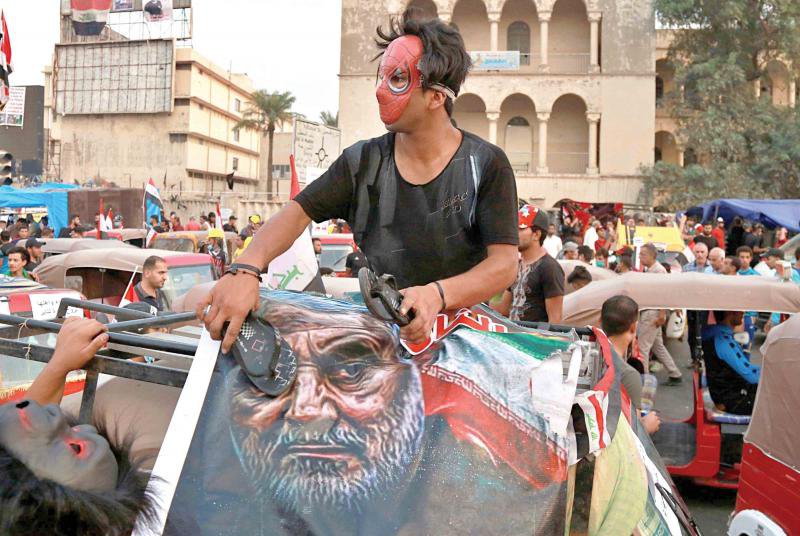
12. The Belarusian protests were a direct reaction to President Alexander Lukashenko wanting to secure a 6th term in the office.
The protests initially began as a reaction to the 2020 presidential election, in which President Alexander Lukashenko sought his sixth term in office. Following the elections, Sviatlana Tsikhanouskaya, Lukashenko’s main opponent, rejected the results and claimed instead to have received 60–70% of the votes. Few days later the European Union also published a statement rejecting the legitimacy of the elections.
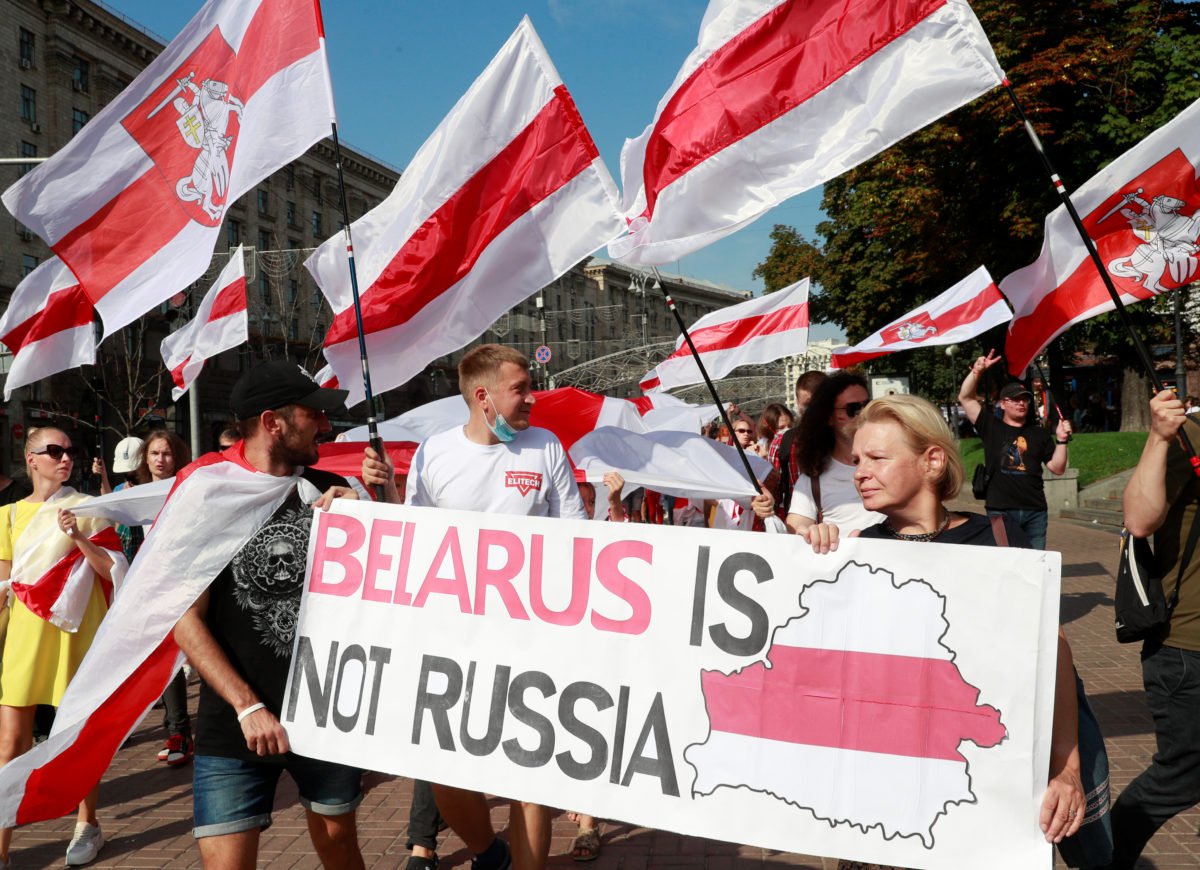
13. Turkish cities were filled with women from the entire country protesting against the country’s appalling record with violence against women.
Thousands of women from all over the country flooded the streets to protest against violence and demand ‘the country remain a signatory to an international pact against such attacks’. Turkey’s capital, Istanbul saw women with placards that said: ‘Women will not forgive violence’, ‘Apply the Istanbul Convention’ and ‘Long live women’s solidarity’.
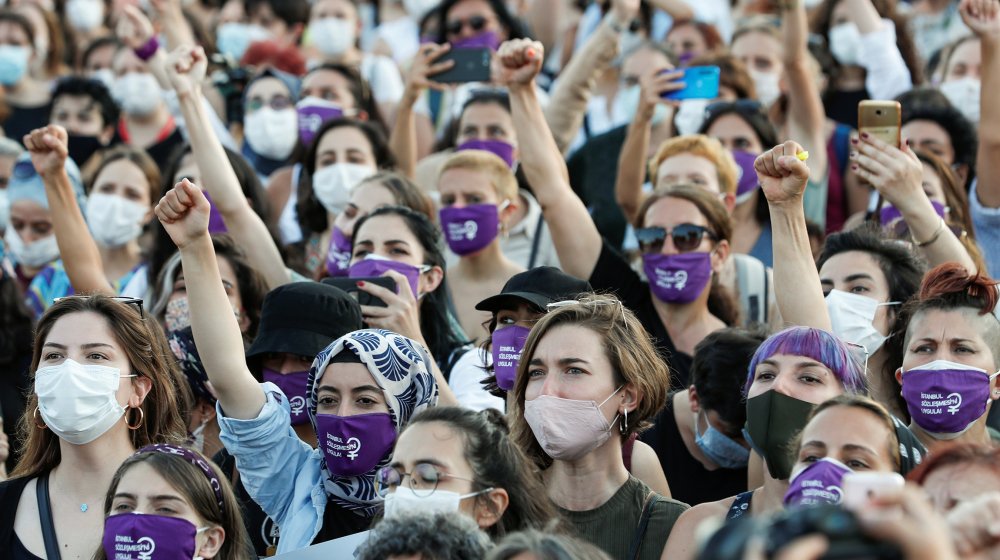
These are only a few amongst the plethora of protests across the globe that took place in 2020, where people weren’t afraid to let their voices be heard by their countries’ leaders.

















